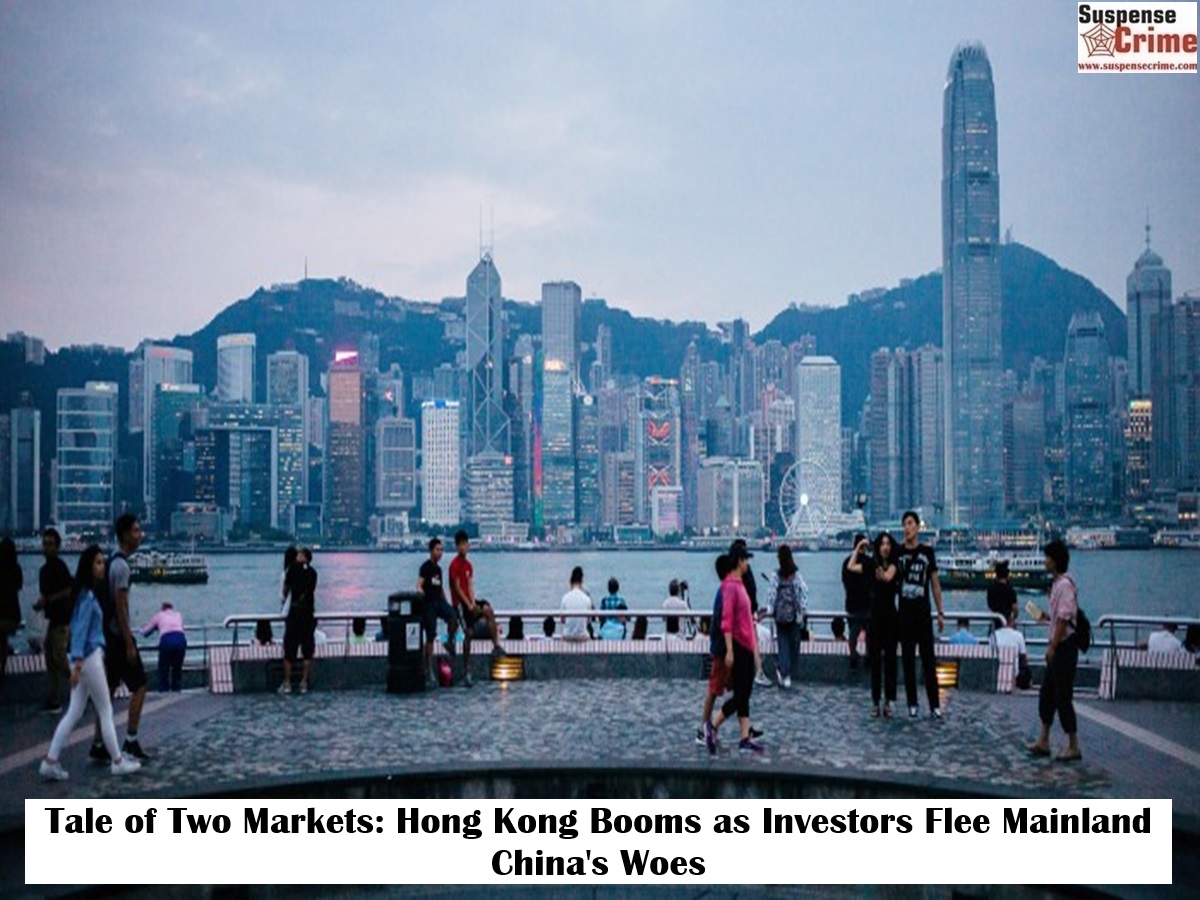
Suspense crime, Digital Desk : In a stark divergence that speaks volumes about the current economic climate, Hong Kong's stock market is soaring while mainland China's languishes, revealing a deep split in investor confidence.
While the two markets have historically moved in tandem, 2024 has painted a very different picture. Hong Kong's Hang Seng Index has surged over 20% from its January lows, officially entering a bull market. In contrast, mainland China's blue-chip CSI 300 Index has only managed a meager 4.4% gain in the same period.
This growing gap highlights how global and even Chinese investors are navigating the region's complex economic and political landscape.
Why is Hong Kong Rallying?
Investors are flocking to Hong Kong for several key reasons:
- Bargain Hunting: After a prolonged downturn, Hong Kong stocks were seen as significantly undervalued, offering an attractive entry point.
- A "Safer" Bet on China: The city lists many of China's biggest tech and corporate giants. It allows investors to buy into these companies through a market with a more established international framework and a currency pegged to the stable US dollar, shielding them from the weakening yuan.
- Capital Inflow: Both international funds and, crucially, Chinese state-backed funds have been pouring money into Hong Kong stocks, signaling strong support.
- Shareholder Returns: High expectations for generous dividends and share buybacks are further sweetening the deal for investors.
Why is Mainland China Lagging?
Conversely, direct investment in mainland China is being held back by a perfect storm of challenges:
- Severe Economic Stress: A deep and persistent crisis in the property sector, weak consumer confidence, and deflationary pressures continue to cripple economic growth.
- Geopolitical Risk: Heightened tensions with the West have made foreign investors wary of the political and regulatory risks associated with the mainland market.
Essentially, Hong Kong is becoming the preferred "proxy" for investing in Chinese assets. It offers exposure to China's growth stories without the direct exposure to its escalating internal and external pressures. This trend marks a significant shift in global investment strategy and a clear verdict on the perceived stability of the two major financial hubs.
Read More: The Unstoppable Surge Why Donald Trump Feels Bulletproof Right Now

 Share
Share



